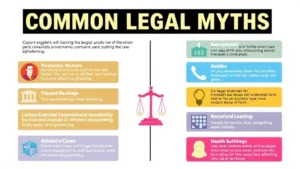Real Case Analysis: The Costly Mistakes in Employee Management
When John, an American entrepreneur, launched his bubble tea chain in Taiwan, he thought he had covered all his bases with a comprehensive employee consent form. However, what seemed like prudent business practice turned into a legal nightmare, potentially risking his business’s reputation and finances. Let’s explore what went wrong and how you can protect your business.
The Scenario: Common Mistakes Foreign Business Owners Make
John’s case highlights several critical issues that many foreign business owners face in Taiwan:
Problematic Policies Implemented:
- Withholding training period wages
- Strict leave request documentation
- Unauthorized wage deductions
The Turning Point:
A simple family emergency leave request escalated into a labor dispute that could have been easily avoided with proper legal guidance.
Why These Issues Matter to Your Business
Financial Risks:
- Potential fines: NT$20,000 to NT$1,000,000 under Article 79 of Labor Standards Act
- Back pay requirements
- Legal proceeding costs
- Damage to business reputation
Legal Implications:
- Labor Standards Act violations
- Civil Code complications
- Potential criminal liability for wage withholding
Key Legal Principles Every Foreign Business Owner Should Know
1. Training Period Compensation
✗ Common Mistake:
Withholding wages for incomplete training✓ Legal Requirement:
According to Article 22 of the Labor Standards Act (勞動基準法), employers must:
- Pay all wages for worked hours
- Consider training time as work time
- Cannot require “free” training periods
2. Leave Management
✗ Common Mistake:
Requiring excessive documentation for sudden leave✓ Legal Requirement:
Under Article 4 of the Regulations of Leave-Taking by Workers (勞工請假規則):
- Reasonable notice procedures allowed
- Cannot mandate immediate documentation
- Must respect statutory leave rights
3. Wage Protection
✗ Common Mistake:
Using wage deductions as disciplinary tools✓ Legal Requirement:
Per Article 26 of the Labor Standards Act:
- Strict limitations on wage deductions
- Must follow legal deduction procedures
- Cannot use wages as punishment
How to Protect Your Business: Best Practices
1. Professional Documentation
- Legally compliant employment contracts
- Clear workplace policies
- Proper record-keeping systems
2. Leave Management Systems
- Digital leave application systems
- Clear communication channels
- Flexible emergency procedures
3. Training Programs
- Paid training periods
- Clear training objectives
- Professional development plans
The Better Call Simon Advantage
How We Can Help:
- Preventive Legal Review
- Contract audit
- Policy compliance check
- Risk assessment
- Documentation Support
- Contract drafting
- Policy development
- Compliance guidelines
- Crisis Management
- Immediate response strategy
- Dispute resolution
- Authority negotiations
Success Stories
Case Resolution:
When another foreign business owner faced similar issues, our intervention:
- Resolved the dispute pre-litigation through careful negotiation under Article 71 of the Civil Code (民法)
- Updated all employment policies to comply with current labor regulations
- Implemented compliant systems based on Labor Standards Act requirements
- Protected the business’s reputation through proper legal procedures
Take Action Now
Don’t wait for a minor issue to become a major crisis. Common signs you need legal review:
- Using templates from other businesses
- Uncertain about recent labor law changes
- Planning to implement new policies
- Experiencing employee disputes
Conclusion
In Taiwan’s complex labor law environment, prevention is always better than cure. The Labor Standards Act, Civil Code, and various labor regulations create a comprehensive framework that every business owner must navigate carefully. With proper legal guidance, you can protect your business while maintaining positive employee relations.
Disclaimer: This article provides general information only and should not be considered as legal advice for any specific case. Please consult with legal professionals for advice on your specific situation.




